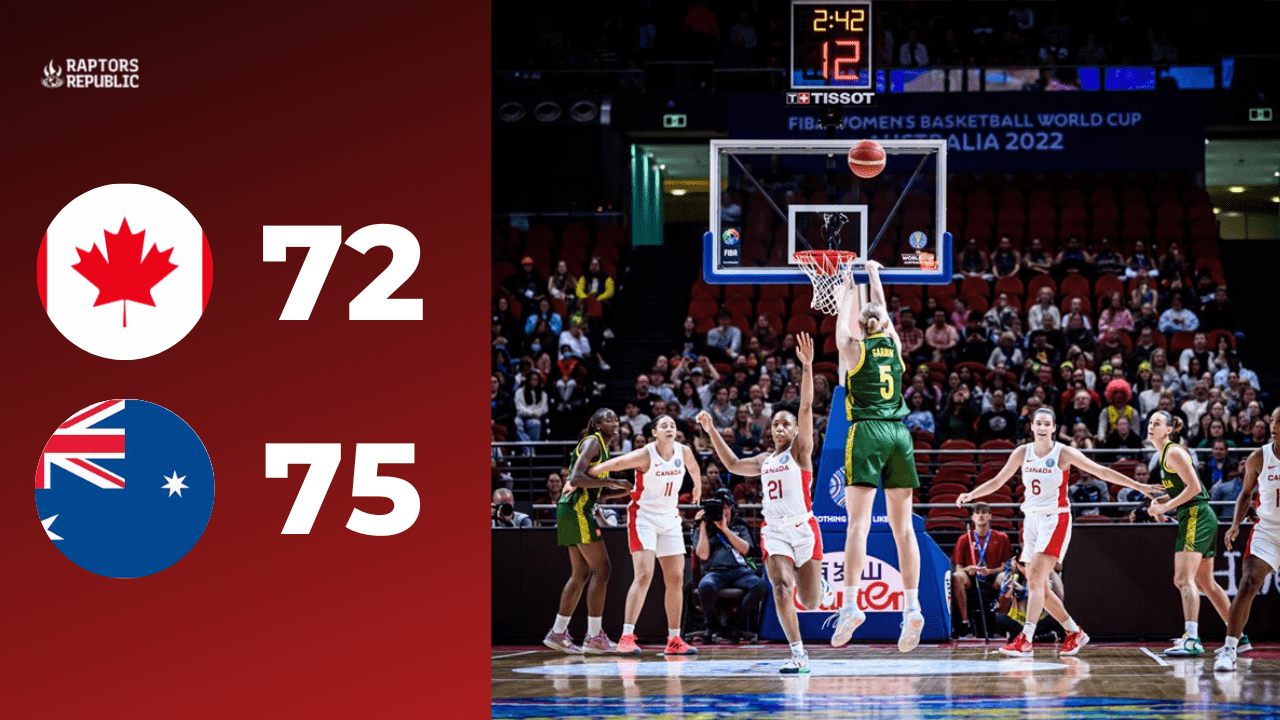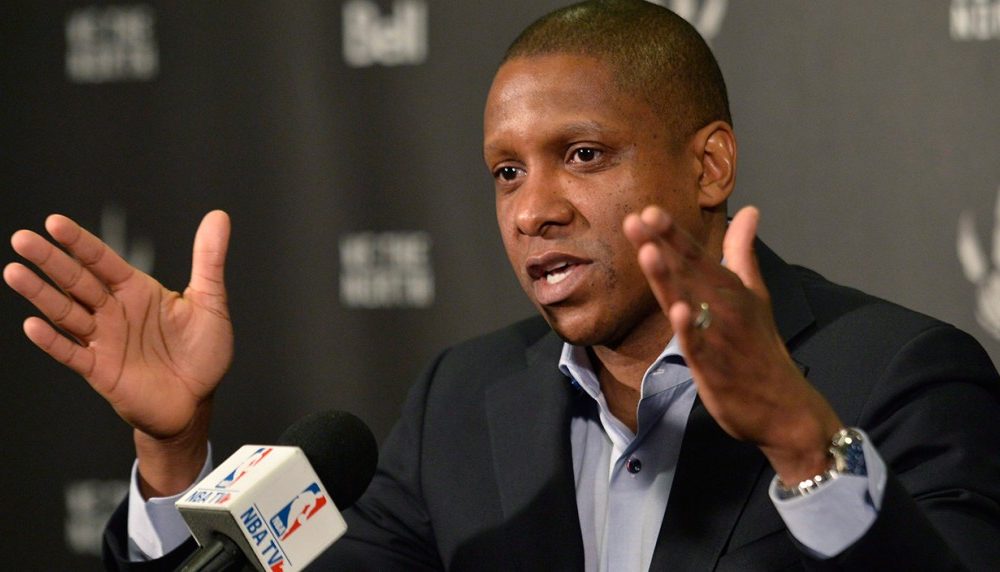Team Canada entered Monday’s action against the host Australia with a 3-0 record, the only team in Group B to remain undefeated after five days of the FIBA World Cup. Canada was hoping to keep the ball rolling and to clinch the top seed in the group with a win against Australia, but the Aussies had other ideas, winning 75-72 in a back and forth affair that saw Canada play for point differential towards the end to ensure they have a chance to determine their own fates tomorrow.
After Australia jumped out to a quick 9-3 lead, scoring repeatedly in the pick-and-roll as they took advantage of Canada’s aggressive trapping defense, Canada adjusted and locked in on the defensive end with quicker rotations, scoring the next 11 points and taking a 23-14 lead into the second quarter. In fact, Canada allowed just 5 points in the final 8:35 of the first quarter.
Canada was in complete control, leading 33-19 with just over four minutes left in the second quarter, and it appeared that this game was going to go how every game has gone for Canada in this tournament: they start slow, pick up the defensive activity, force turnovers that fuel their transition offense, go on a run and deflate their opponent by taking teams out of their sets with intense ball pressure and taking players out of their rhythm with by not conceding any easy shots.
But Australia had their own ideas. Fuelled by a home crowd upwards of 9,000, the home team began causing turnovers of their own, scoring 17 points off turnovers, and grabbed 10 offensive rebounds for 5 second chance points in the game. In the late second quarter, they started moving the ball really well and hitting threes, making 4 of their 6 first half three-pointers in the frame as they went on a 19-0 run to end the half up 38-33.
Canada came out of the halftime break with a stop followed by a layup by Bridget Carleton, who fueler a successful quarter in which the Canadians outscored the Aussies 24-13 to take a 57-51 lead into the final frame. Carleton was consistently creating something from nothing, scoring 16 points in the game. She was helped by Nirra Fields, who has been brilliant all season when it comes to creating her own shot, who scored a team-high 17 points.
Unfortunately, it was all Australia in the fourth quarter, continuing to move the ball, play with a ton of energy, and play team basketball while the Canadians often settled for isolation basketball in the half court. In fact, Australia had 22 assists on their 25 made baskets, while Canada had just 12 assists on their 26 made baskets. Australia still had to fight and claw for every basket against a Team Canada defense that continues to be extremely tough to score against, but they did just enough to come away with a 75-72 win.
“I’m very proud of my players because we competed all the time and this is what I ask of them,” Team Canada head coach Víctor LaPenña said. “We have to compete every minute, to compete in all games in this tournament and unfortunately today it wasn’t possible to win. We dominated the game in two periods and Australia dominated the game in two periods. Finally, we lost by three points. We were very close and this is very important for our future because today we got experience in this kind of atmosphere. I’m sure in the future when we have these kinds of games or moments, we will be better and solve some situations that today we didn’t resolve in a smart way.”
Still, Canada didn’t look to be too displeased with the ultimate result. While they would have liked to win and secure the top seed in the group, Canada began to play for point differential towards the end of the game, losing by just 3 to ensure that they would finish with a better point differential than Australia, France, Japan, and Serbia in their head-to-head matches.
Canada now has a chance to determine their own fate against Mali at 2am EST on Tuesday, September 27th. If they win and France OR Japan win, they win the group. Considering Mali is the worst team in the group, Canada will likely finish top-2 and guarantee that they avoid China and the favourites United States in the quarter finals and not play them until the medal round.



